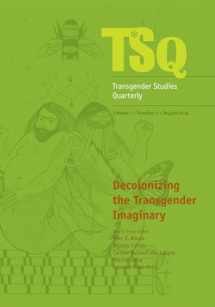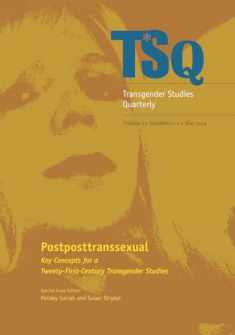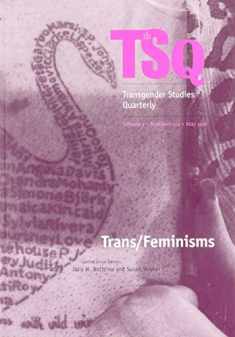
Decolonizing the Transgender Imaginary (Transgender Studies Quarterly)
Book details
Summary
Description
What is at stake in acknowledging transgender studies' Anglophone roots in the global North and West? What kinds of politics might emerge from challenging the assumption that biological sex—or the categories "man" and "woman"—is stable and self-evident across time, space, and culture? This collection asks how trans scholarship can decolonize, rather than reproduce, dominant imaginaries of sexuality and gender.
The issue highlights roadblocks as well as unexpected openings in the global circulation of trans politics and culture. A First Nations scholar recovers lost tribal knowledge of non-Eurocentric gender. A Thai trans filmmaker negotiates culturally incommensurable categories of self. Two contributors consider what is lost as the term transgender replaces local, vernacular categories of difference in India. A study of genderqueer childhood in Peru disrupts colonial ethnographer-informant roles, while another author critiques the colonialist ethnography on the sarimbavy, gender nonconforming categories of Madagascar. Another essay follows the global commodity chain of synthetic hormones to explore the biopolitics of transgender bodies and race. Finally, a roundtable discussion among a transnational panel of activists, culture makers, and scholars offers perspectives on decolonizing the transgender imaginary that range from the celebratory to the cynical.


We would LOVE it if you could help us and other readers by reviewing the book
Book review





